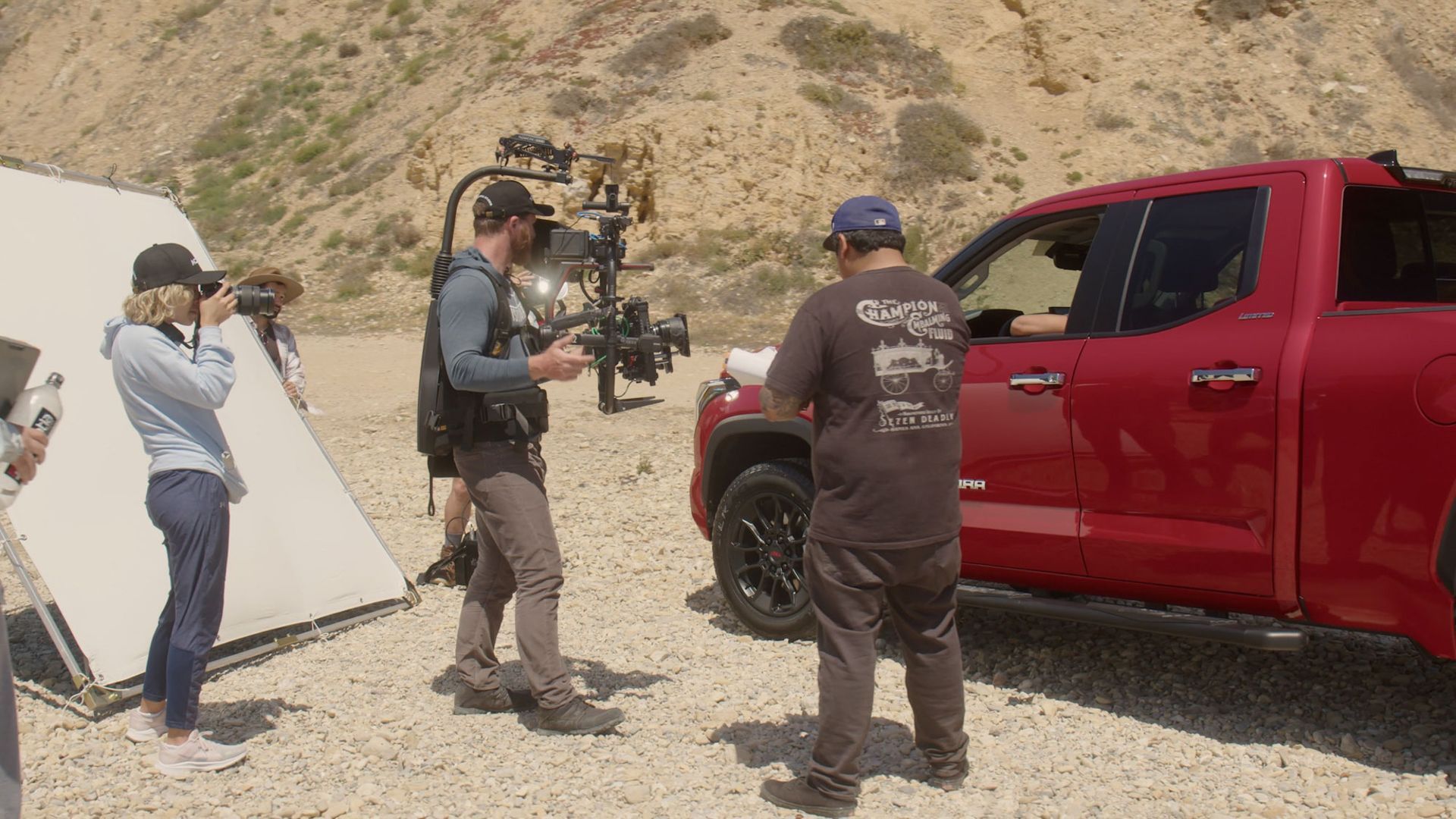
In the fast-paced world of marketing and advertising, where polished promises and glitzy presentations are the norm, a unique and intriguing approach is known as "lemon ads." These are not typical advertisements but a refreshing departure from the overblown claims and glossed-over shortcomings that often inundate the advertising landscape.
What Are Lemon Ads?
Lemon ads are a distinct breed of video advertisements that intentionally showcase the flaws of a product or service. Unlike conventional marketing strategies that highlight strengths and gloss over weaknesses, lemon ads take an unorthodox approach by embracing imperfections. By candidly acknowledging the limitations or drawbacks of a product, these ads seek to turn perceived weaknesses into strengths, making the offering more relatable and authentic.
This approach is efficient for products or services that are new, different, or unique. Consumers often crave transparency and authenticity in a world saturated with competition and exaggerated claims. Lemon ads provide just that, as they admit, "Yes, we have some flaws," and turn these flaws into selling points.

Why Are Lemon Ads Effective?
Honesty as a Refreshing Strategy
One of the critical reasons lemon ads are effective lies in their honesty. In an era where consumers are constantly bombarded with advertisements promising the moon and stars, a straightforward and honest approach can be a breath of fresh air. Lemon ads don't resort to exaggeration or unrealistic claims; instead, they acknowledge the product's shortcomings and limitations.
Imagine you're in the market for a new smartphone, and you've been inundated with ads proclaiming that every device is "the best." Then, you stumble upon a lemon ad for a smartphone that openly admits it has a slightly shorter battery life but excels in other areas. You might find this honesty surprisingly refreshing and even more trustworthy.
Creating Curiosity and Intrigue
Lemon ads are not just about admitting flaws; they are also adept at creating a sense of curiosity and intrigue. When consumers encounter an advertisement that willingly points out the limitations of a product, they are often more likely to engage with it to learn more.
Captivation becomes a potent force in advertising, seizing the audience's focus and luring them into deeper exploration. Lemon ads use this psychological quirk to their advantage, pulling viewers in with the promise of a unique and genuine experience.
Building Trust
Trust is a cornerstone of successful marketing, and lemon ads excel at establishing it. By openly discussing a product's flaws, these ads show transparency that can be rare in advertising. This transparency builds trust with the audience, as consumers feel they are not being deceived or manipulated.
Viewers who see a lemon ad are more likely to believe that the company has nothing to hide. This trust can go a long way in shaping consumer perception and fostering brand loyalty.

Different types of lemon ads
In the realm of lemon ads, diversity is the name of the game. There are various approaches to embracing product flaws and turning them into strengths. To effectively employ this unique advertising strategy, marketers have developed different types of lemon ads, each with its distinctive approach and appeal.
Humorous Lemon Ads
Laughter is often considered the best medicine, and in the world of advertising, humor can be a powerful remedy for highlighting product flaws. Humorous lemon ads take a lighthearted approach to presenting imperfections. These ads use comedy and wit to make light of a product's or service's shortcomings, effectively disarming potential skepticism with a good dose of laughter.
Imagine an ad for a vacuum cleaner that playfully exaggerates the dust it misses or a car commercial that comically acknowledges its quirks. Such ads make consumers smile and create a memorable and relatable impression of the product. Humorous lemon ads accept flaws and celebrate them, fostering a sense of authenticity that resonates with the audience.
Testimonials from Skeptical Customers
Sometimes, the most compelling voices in a lemon ad aren't those of the company itself but of the customers who were initially skeptical but ultimately won over. Testimonial-based lemon ads feature genuine accounts from individuals who initially doubted the product or service but later became its loyal advocates.
These testimonials humanize the brand and offer relatable stories of transformation. Hearing from real people who were once in potential customers' shoes can be incredibly persuasive. It makes the audience think, "If it worked for them, maybe it can work for me too." These ads address product flaws and provide reassurance and trust through authentic narratives.
Comparison Ads
Comparison ads are a powerful subcategory of lemon ads that pit your product or service against competitors, showcasing the flaws of the alternatives. By juxtaposing your offering with others, you indirectly highlight the weaknesses of competing products or services, positioning your own as the superior choice.
For instance, a smartphone commercial might compare the camera quality of their device to a rival's by clearly pointing out the competitor's limitations. This approach capitalizes on consumers' natural inclination to evaluate their options and gives them the information they need to make an informed choice.
Product Demonstrations
Lemon ads can also take the form of product demonstrations that highlight a product's or service's flaws. These demonstrations show how to use the product, bringing its imperfections into the spotlight. By doing so, they help potential customers make an informed decision based on real-world experiences.
For example, a blender ad might demonstrate that it's not the quietest appliance in the kitchen, or a fitness equipment commercial might show the limitations of its compact size. By illustrating these aspects, the ad provides transparency and empowers consumers to choose with wide-open eyes.

Here are a few examples of successful lemon ads
Volkswagen Beetle "Lemon" Ad
In the swinging 60s, Volkswagen introduced an ad that would go down in history as a classic example of a lemon ad. The ad features a man attempting to sell a used Volkswagen Beetle, a car he unapologetically calls a "lemon." He goes to great lengths to highlight every flaw, from minor dings to a temperamental engine. However, the seller's honesty strikes a chord with the potential buyer, who decides to purchase the car. The ad closes with the tagline "Lemon. Think small."
This ad's straightforward acknowledgment of the car's flaws made it particularly effective. Instead of glossing over imperfections, Volkswagen leaned into them, demonstrating a degree of candor uncommon in advertising at the time. An iconic ad campaign increased Beetle's popularity and became a timeless example of how embracing product flaws can pay off.
Apple "Mac vs. PC" Campaign
In the early 2000s, Apple initiated the "Mac vs. PC" campaign, advertisements pitting Mac computers against their PC counterparts. These ads boldly underscored perceived PC shortcomings, including vulnerability to viruses, intricate user interfaces, and frequent technical glitches.
The brilliance of this campaign lay in its ability to turn these PC weaknesses into strengths for Mac. By positioning the Mac as the sleek, user-friendly alternative, Apple leveraged the flaws of its competitors to create a brand image that appealed to consumers seeking simplicity and reliability. The campaign contributed significantly to making Mac computers more prevalent, showing that comparing your product to others and highlighting their flaws can be a winning strategy.
Old Spice "The Man Your Man Could Smell Like" Campaign
In the 2010s, Old Spice embarked on a marketing journey that transformed its image and revitalized the brand among younger consumers. "The Man Your Man Could Smell Like" campaign featured a series of humorous and eccentric ads that playfully poked fun at the Old Spice brand. The ads embraced the brand's outdated reputation and turned it into a funny and attractive selling point.
These commercials featured a charismatic and shirtless spokesman delivering witty one-liners while embodying the image of an impossibly suave and confident man. The campaign argued that using Old Spice could transform an ordinary man into someone irresistible. It effectively acknowledged the brand's previous shortcomings and positioned them as qualities to be celebrated.
Tips for creating effective lemon ads
Creating a compelling lemon ad isn't just about acknowledging the flaws of your product or service; it's an art that requires a thoughtful approach. To help you navigate this unique advertising landscape, here are some essential tips for crafting effective lemon ads:
1. Honesty as the Best Policy
The cornerstone of any successful lemon ad is honesty. Be forthright and upfront about the flaws of your product or service. Avoid sugarcoating or exaggeration; instead, embrace transparency. Your audience will appreciate your authenticity and be more likely to trust your brand.
Remember, the goal isn't to deter customers but to build trust by admitting imperfections and demonstrating how you've turned them into assets.
2. Inject Humor and Lightheartedness
Humor is a powerful tool in marketing, and it's particularly effective in lemon ads. Using humor or lightheartedness can make your ad more engaging and memorable. It not only lightens the tone but also helps to disarm potential skepticism.
Consider the Volkswagen Beetle "Lemon" ad, where humor was used to turn a potential negative into a positive. A well-placed joke or a quirky approach can make your audience more receptive to the flaws you're presenting.
3. Know Your Target Audience
Understanding your target audience is paramount in lemon ad creation. Different demographics respond to various forms of messaging, so tailor your ad to resonate with your specific audience. Identify their pain points and concerns and address them in your ad.
For instance, if you're promoting a household cleaning product with an imperfection, target parents by highlighting how it simplifies their daily routine despite the flaw. Your audience will appreciate the relatability and practicality of your message.
4. Visual Appeal and Production Quality
The aesthetics of your ad matter just as much as the content. A visually appealing and well-produced ad can leave a lasting impression on viewers. Ensure that your ad is professionally shot, edited, and visually enticing.
Aesthetics can complement your message, making it more impactful. Utilize captivating visuals, striking graphics, and high-quality production to create an ad that conveys your message effectively and leaves a positive impression.
Incorporate these tips into your lemon ad creation process, and you'll be well on your way to turning the flaws of your product or service into strengths. By staying honest, using humor judiciously, targeting your audience, and ensuring top-notch visual appeal, you can craft an ad that engages your viewers and builds trust and authenticity around your brand.

How to measure the success of your lemon ads
Creating a lemon ad is just the beginning; to gauge its effectiveness, you must assess how well it resonates with your audience and drives the desired outcomes. Here are some essential metrics to measure the success of your lemon ads:
View Count
The view count is a fundamental metric that quantifies the number of times your lemon ad has been viewed. It provides an initial indicator of the ad's reach and exposure. A high view count suggests your ad has attracted attention and generated interest. However, it's crucial to delve deeper into other metrics to understand the quality of these views.
Click-Through Rate (CTR)
The click-through rate (CTR) is a more insightful metric that measures the percentage of people who clicked on your ad after viewing it. This metric goes beyond mere impressions and indicates how compelling your ad drives user engagement. A higher CTR implies that your ad effectively piqued the audience's interest and enticed them to take action.
For a lemon ad, a substantial CTR could indicate that your audience appreciates the honesty and humor in your approach and is willing to explore further. It's a valuable metric to assess the immediate impact of your ad.
Conversion Rate
At the core of every advertising endeavor lies the ultimate objective: transforming mere viewers into active customers. The conversion rate, a crucial metric, gauges the proportion of individuals who not only clicked on your ad but also took the intended action, be it making a purchase, subscribing to a newsletter, or seeking additional information.
A high conversion rate indicates that your lemon ad has effectively persuaded viewers to take the next step despite acknowledging product flaws. It demonstrates the power of your messaging in turning weaknesses into strengths and influencing consumer behavior.
In addition to these core metrics, consider other factors specific to your campaign, such as social media shares, comments, and feedback. These qualitative insights can provide valuable feedback on the emotional impact of your ad and help you refine your lemon ad strategy.
Remember that a lemon ad's success may not solely be measured in immediate conversions but also in long-term brand perception and loyalty. Over time, it can contribute to a more authentic brand image, increased trust, and a stronger connection with your target audience.
Conclusion
Lemon ads can be a very effective way to promote your videos. By being honest and upfront about the flaws of your product or service, you can create informative and engaging ads. Lemon ads can also help you to develop a sense of curiosity and intrigue among consumers.

Get total clarity on your video marketing and paid media with our FREE comprehensive data audit.







